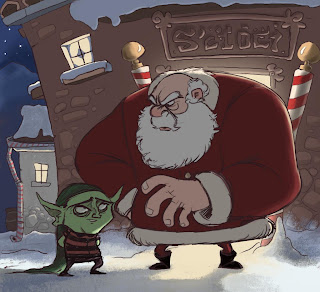“Come and put your name on it,” is the first line in Rihanna’s song “Birthday Cake.” She is referring to her female anatomy as she dances in a hip-centered motion, reminiscent of Caribbean movement.
Across the globe, reactions to the song’s connotation and the provocative dancing varied greatly, each individual interpreting the sequence of events based on their own experiences, culture, race and gender. Regardless of the response to the song, the fact that Rihanna’s persona and image are an implication of something greater than herself cannot be denied.
In this episode of the Oxford Comment, Adanna Jones, contributor to the Oxford Handbooks Online, Oneka LaBennett, author of She’s Mad Real: Popular Culture and West Indian Girls in Brooklyn, and Treva Lindsey, author of the forthcoming Colored No More: New Negro Womanhood in the Nation’s Capital, discuss the transnational icon, born in Barbados with Guyanese roots instilled from her upbringing, that challenges the exploitation of the black female body, female empowerment, and what that means in a global space.
Featured Image Credit: Rihanna performing at the Kollen Music Festival 2012 by Jørund F Pedersen. CC BY-SA 3.0 via Wikimedia Commons.
The post Rihanna and representations of black women – Episode 39 – The Oxford Comment appeared first on OUPblog.

Human rights law has had a long and tortuous history in the UK, defined by some of the most fascinating cases in legal memory. The case of John Wilkes was a milestone in establishing the right of free speech. In 1763, Wilkes wrote a scathing attack on a speech delivered by King George III when he opened Parliament.
The post The right to a fair trial: part two appeared first on OUPblog.
We (unintentionally) started a debate about the origin of the word “buckaroo” with our quiz Can you speak American? last week. In an excerpt from Richard Bailey’s Speaking American, he argues that it comes from the West African language Efik (pages 52-54). A response from OED editor Dr. Katrin Thier will follow.
Not all Barbadians were brutish planters tyrannizing over those unfortunate enough to be in their power. In 1684, Thomas Tryon published some Friendly Advice in support of the conversion of slaves to Christianity. (The practical problem was that Christians might seek emancipation, and it was thus in the planters’ interest to keep these evangelizing efforts from being successful.) Tryon presented his argument in the form of a dialogue between a slave and his master, though without doing much to give an air of authenticity to the conversation:
SLAVE: I desire first you would lay that frightful Cudgel a little further off, and then begging Pardon for the Presumption, since this is the Day you observe to serve God in, I would crave leave to be a little instructed touching that Service, and wherein it consists.
MASTER: Why? It consists in being Christians, as we are — But what should I talk to such a dark ignorant Heathen, scarce capable of common Sense, much less able to understand things of such an high and mysterious Nature.
SL. I confess we are poor silly dark ignorant Creatures, and for ought I find, so many of the Bacchararo’s too, as well as we; but that you may not grudge your Time or Pains, I will assure you, that I will attend very seriously to what you say, and possibly may prove somewhat more docile than some of our Complexion; For I was the Son of a Phitisheer, that is, a kind of Priest in our Country and Way; he was also a Sophy, and had studied the Nature of things, and was well skill’d in Physick and natural Magick …. (Tryon 1684 , 150–51)
Tryon inserted a note to explain Bacchararo’s: “So the Negro’s in their Language call the Whites.” This publication (and the note) provide the first evidence of the word that in its modern spelling is rendered backra or buckra (Craigie and Hulbert 1938-44; Cassidy and LePage 1980; Allsopp 1996; Collymore 1957).
Buckra is very much an indicator word revealing the Barbadian connection to South Carolina. Today, according to The Dictionary of American Regional English, the word is found “chiefly” in coastal South Carolina and Georgia, though it is well known in many regions of the United States (Cassidy and Hall 1985). In the Caribbean, it has been employed in various compounds, though early evidence is lacking for many of them: backra fire ‘electricity,’ backra-johnny ‘poor white,’ backra missy ‘daughter of a planter,’ backra nigger ‘light-skinned person of mixed black and white ancestry,’ backra pickney ‘white child.’
Buckaroo persisted in the Sea Islands of South Carolina. In the 1970s, two investigators examined nicknames of people in the region and noted that the given names were often of English origin and the nicknames of African. The person bearing the nickname buckaroo was, they reported, especially skilled in the management of farm animals, and they asserted that the name was derived from vaquero ‘cow hand’ (< Spanish vaca ‘cow’). More likely, however, is the explanation that it was the special skill rather than the animals that accounted for the nickname (Baird and Twining 1991).





Which books have changed the world? Given our news today, one might expect that books no longer have as great an impact on it. ISIS has Syria in turmoil and refugees are making their way to Europe; the United States is gearing up for an election that may determine the future for many others around the globe; China is changing in rapid and unexpected ways, with political and economic consequences rippling around the world.
The post Hurst Publishers: 5 academic books that changed the world appeared first on OUPblog.